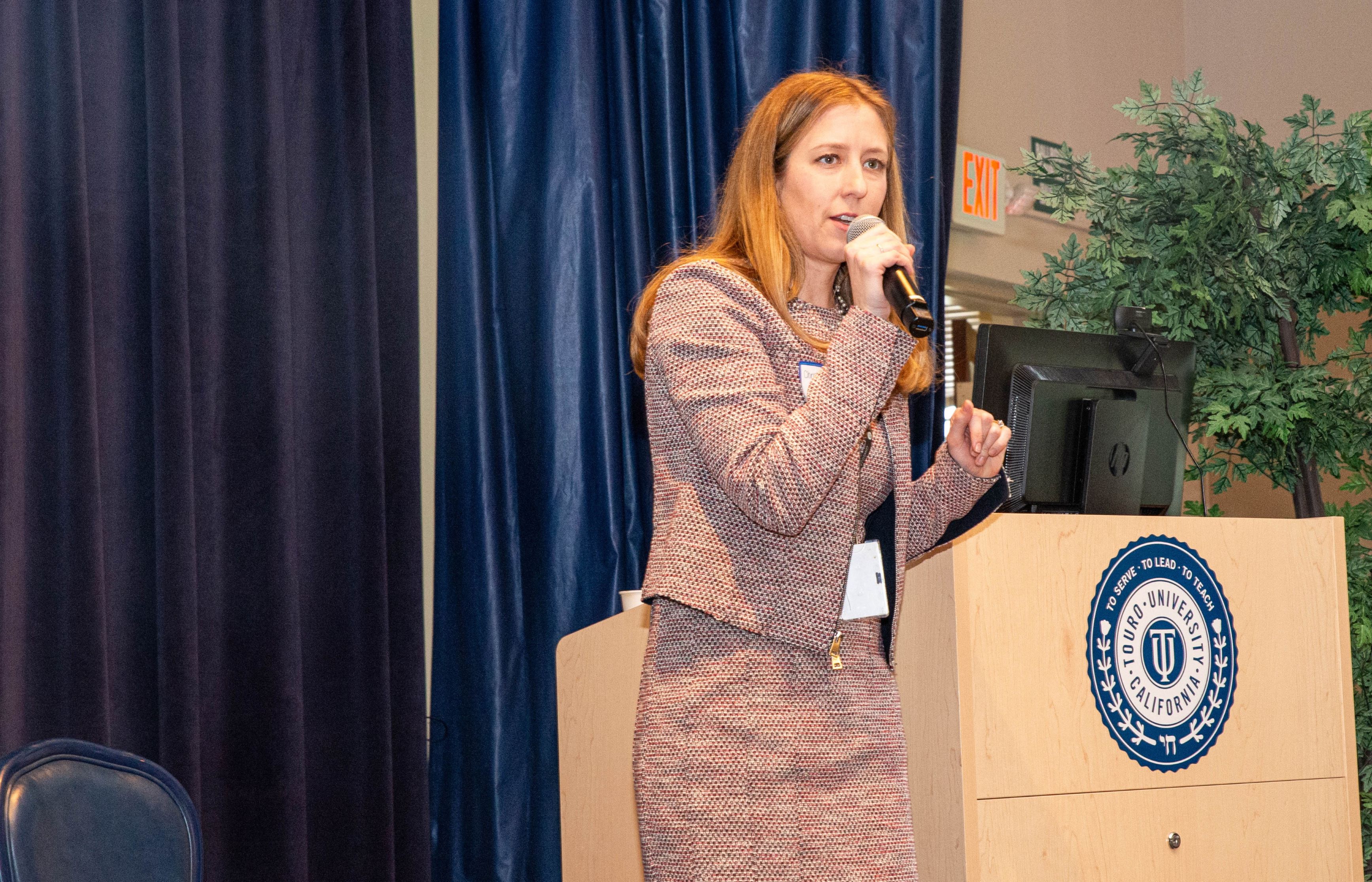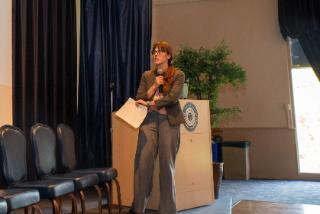Overdose Prevention Forum Hosted at Touro
Community organizations focused on drug interventions congregate to discuss treatment, recovery, and overdoses prevention.

A packed house at Farragut Inn on the Touro University California campus on December 15th was filled with community group leaders gathered to discuss strategies to deal with the opioid epidemic.
“We had an incredible lineup of inspiring speakers to share their wisdom on how we as a community can better utilize our limited resources on recovery-oriented systems of care,” said Dr. Christine Kinnevey Greig who along with Arthur Camargo was part of Drug Safe Solano event organizing team.
Community partners at the event included Contra Costa County Medication Education and Safety Disposal (MEDS) Coalition, First Steps Recovery addiction treatment facility, National Coalition Against Prescription Drug Abuse, Partnership HealthPlan of California, Solano County Behavioral Health, and Solano Recovery Project.
The daylong symposium featured a keynote presentation by Dr. Andrew Kolodny, a national expert on the opioid crisis and Medical Director for the Opioid Policy Research Collaborative. Armed with data and a depth of knowledge on the crisis, Kolodny serves as an expert witness in government litigation against complicit pharmaceutical companies.
One of the most poignant sessions was an afternoon panel of individuals in recovery, talking about how they ended up addicted and the challenges and difficulties they faced in dependency and the road out. Each story humanized the struggle and scale of the addiction epidemic.
 Dr. Emily Fisher, family medicine physician at Kaiser Permanente and Director of Community Health at 4th Second, discussed how connected being unhoused and substance use are. 4th Second is trying to help individuals in a variety of ways like working to create more housing, but also visiting encampments to meet people where they are with harm reduction tools and basic care with groups like Touro student group Street Medicine Club.
Dr. Emily Fisher, family medicine physician at Kaiser Permanente and Director of Community Health at 4th Second, discussed how connected being unhoused and substance use are. 4th Second is trying to help individuals in a variety of ways like working to create more housing, but also visiting encampments to meet people where they are with harm reduction tools and basic care with groups like Touro student group Street Medicine Club.
The news and discussions about the opioid epidemic were valuable, but not as important as the groups connecting, trading insight, and forging opportunities for collaboration in the future.
“We must continue the battle against this opioid use disorder disease that is too often fatal and work to promote healing and empowerment to those living that journey,” says Kinnevey Greig.
